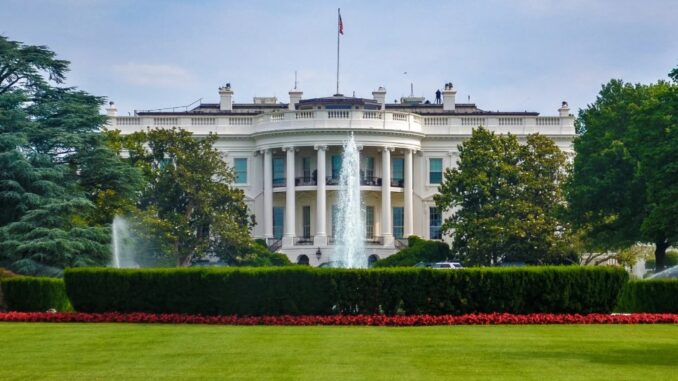
The United States has formally rejected the International Maritime Organization’s (IMO) proposed carbon levy, branding it a “global carbon tax on Americans” and vowing to rally opposition ahead of a key vote in October.
In a joint statement, secretary of state Marco Rubio, commerce secretary Howard Lutnick, energy secretary Chris Wright, and transportation secretary Sean Duffy said president Donald Trump would not accept “any international environmental agreement that unduly or unfairly burdens the United States or harms the interests of the American people.”
These fuel standards would conveniently benefit China
The proposed net-zero framework, agreed in principle by a majority of IMO member states in April, seeks to curb greenhouse gas emissions from the shipping sector by introducing fuel standards and levies on ships that fail to meet strict targets. Proponents say the measures are critical to meeting the IMO’s 2050 climate goals, but the US delegation has argued the rules would disproportionately benefit China and penalise fuels where US industry leads such as LNG and biofuels.
“These fuel standards would conveniently benefit China by requiring the use of expensive fuels unavailable at global scale,” the joint statement read. “Even small vessels would incur millions of dollars in fees, directly driving up costs for American consumers.”
The administration warned that it would “not hesitate to retaliate or explore remedies” should the IMO adopt the measure. No details were given on the form of such retaliation.
The stance is consistent with April’s Marine Environment Protection Committee (MEPC) session, where US negotiators walked out of talks.In April’s vote, 63 member states — including China, Brazil and EU nations — backed the framework, while 16 opposed.
The agreement constitutes a fuel standard, as such a mandate on the GHG intensity of energy used, coupled with a pricing and trading mechanism.
Ships that do not reduce their intensity of GHG emissions – including carbon dioxide, methane and nitrous oxide — in line with two reduction trajectories outlined in the new regulations, which still need to be promulgated at the next MEPC in October, are deemed to have an emissions deficit. This must then be addressed by buying so-called remedial units. For compliance with a so-called base target trajectory, the units will cost $380 per ton of CO2-equivalent emissions. For what is called a direct compliance target, they’ll cost $100. Both prices are only for 2028-2030, with future figures to be decided at a later date.
The October decision will require a two-thirds majority – 108 of the 176 IMO members that have ratified the relevant convention – if consensus cannot be reached.
The IMO rarely resorts to voting, but with positions hardening, a formal ballot looks increasingly likely.
Environmental NGOs have condemned the US position, warning that further delay in regulating marine fuel emissions risks undermining the sector’s ability to meet climate targets.
Is Oil & Gas Right for Your Portfolio?
Crude Oil, LNG, Jet Fuel price quote
ENB Top News
ENB
Energy Dashboard
ENB Podcast
ENB Substack






